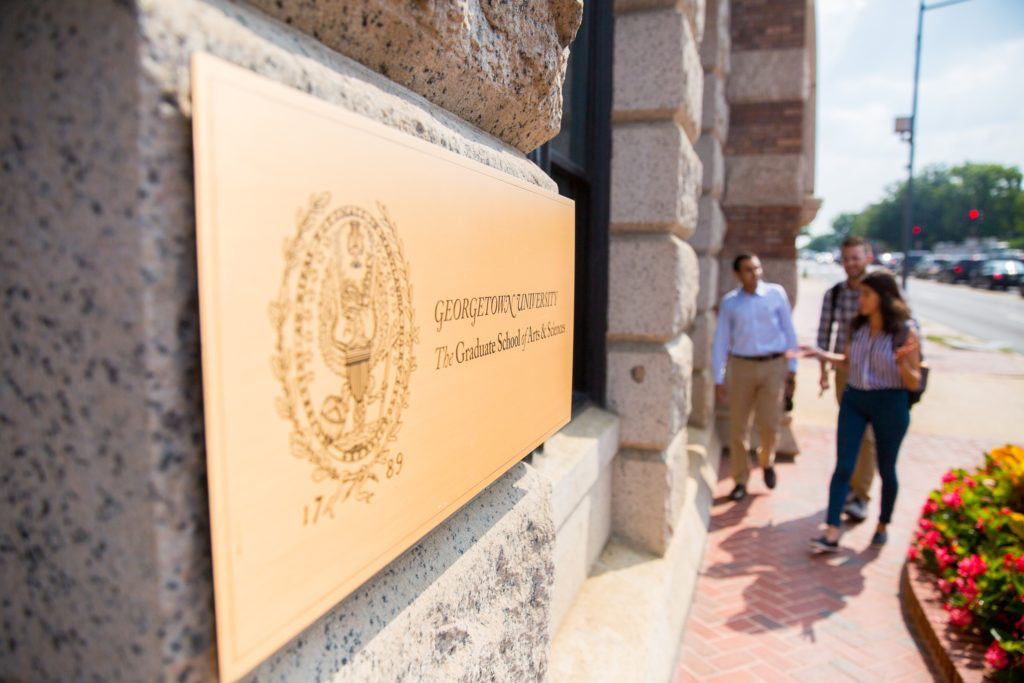Georgetown University will pilot a graduate student housing initiative fall 2022 following years of high housing costs through D.C. and calls from student leaders for university-sponsored housing.
Currently, the School of Continuing Studies offers an online platform through the Office of Neighborhood Life to direct graduate students to off-campus housing, as well as a housing fair that allows students to tour local apartment communities. The School of Medicine requires students to find off-campus housing on their own, while the Georgetown University Law Center offers on-campus housing for incoming law students.

The Georgetown University Graduate Student Government believes affordable student housing in D.C. is a necessity and has called on the university to offer additional housing to graduate students, according to GradGov Chief of Staff Henry Watson (GRD ’24).
“Not only is housing in D.C. expensive, it can also be a real challenge to find appropriate housing and connect with roommates, especially for international students,” Watson wrote in an email to The Hoya. “University-sponsored housing would greatly reduce these difficulties.”
In 2019, the university approved funding for a residential building at 55 H St., near both the Georgetown University Law Center and the School of Continuing Studies. The building will accommodate 476 undergraduate and graduate students and offer students a closer location to many D.C. neighborhoods, including Capitol Hill. The building’s construction is expected to finish Feb. 2022, in time for use during the 2022-23 academic year.
While the new residence will provide students access to more neighborhoods in D.C., the building is almost five miles from Georgetown’s main campus, so without university-provided metro passes for Georgetown students, it could cause accessibility difficulties for students, according to Watson.
“Of course, a new downtown housing option does raise some transportation questions, and increases the impetus for a Georgetown U-Pass, another GradGov priority,” Watson wrote.
University housing is often very expensive and can create tensions between the university and students, so the Georgetown Alliance of Graduate Employees does not support the university-sponsored graduate housing initiative, according to Jewel Tomasula (GRD ’22), chair of the GAGE Bargaining/Research Committee and Jeffrey Tsoi (LAW ’23, GRD ’26), GAGE’s secretary.
“We can see from other urban universities that university-owned grad student housing is very expensive and creates the exploitative relationship where our employer is also our landlord,” Tomasula and Tsoi wrote. “Providing housing is a way for universities to get back the money they pay student workers.”
The housing initiative could also contribute to gentrification in D.C., according to Tomasula and Tsoi.
“For Georgetown-provided grad student housing to be an equitable and positive addition to the D.C. community, the project would need to center grad students with financial need and offer rent well below the current D.C. average,” Tomasula and Tsoi wrote.
Administrators plan to release specific information regarding university housing to current and prospective students in the coming months, according to a university spokesperson.
“Georgetown plans to offer some apartment-style graduate housing in downtown DC next Fall,” the spokesperson wrote in an email to The Hoya. “This space is expected to shift over time and may serve different audiences in the coming years.”
Instead of funding housing, Tomasula and Tsoi hope the university will direct funding towards increasing Ph.D. stipends and hourly wages for master’s students.
“During our 2020 contract campaign, we brought attention to how the majority of Georgetown grad student workers are rent burdened, and the majority spent over 50% of their pay on housing costs,” Tomasula and Tsoi wrote. “Our union membership has prioritized fighting for higher PhD stipends and hourly wages for Masters student workers, instead of Georgetown-owned grad student housing.”














